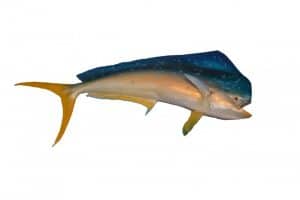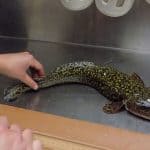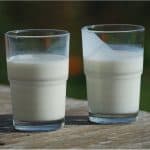Yes, Mahi Mahi fish is a great source of omega-3 fats, proteins, iron and zinc – all responsible for a baby’s brain development. Studies prove that women who consume fish high in omega-3 fats have babies with higher IQs, better eyesight and tend to sleep like a baby. They are likely to reach developmental milestones like imitating sounds, drinking from a cup, climbing stairs and joining two words together sooner than babies whose mothers did not have fish during pregnancy.
The FDA and EPA have categorised Mahi Mahi under the ‘Good Choice’ category and recommend one serving per week. But remember to consume only well cooked fish. During pregnancy a woman’s immunity level is lower than optimal, putting her at risk of being affected by bacteria or parasites present in the fish. Therefore, avoid all kinds of raw fish and fish cooked in a microwave. Opt for baked or grilled Mahi that’s low on calories and high in nutrients.
Why should I limit intake of mahi mahi during pregnancy?
Dolphinfish has high levels of selenium, a mineral essential to maintain the levels of TPO antibodies in a pregnant woman. Optimum levels of TPO antibodies are responsible for proper thyroid function. It is important to have the right amount of selenium in your pregnancy diet. But dolphinfish is also considered to have medium levels of mercury, overconsumption of which, can lead to brain damage in the baby. Hence, even though dolphinfish is considered safe to eat during pregnancy, you need to limit your consumption to 4 ounces a week.
Here’s a nice poster about fishes and their safety during pregnancy from FDA – https://www.fda.gov/media/102331/download






